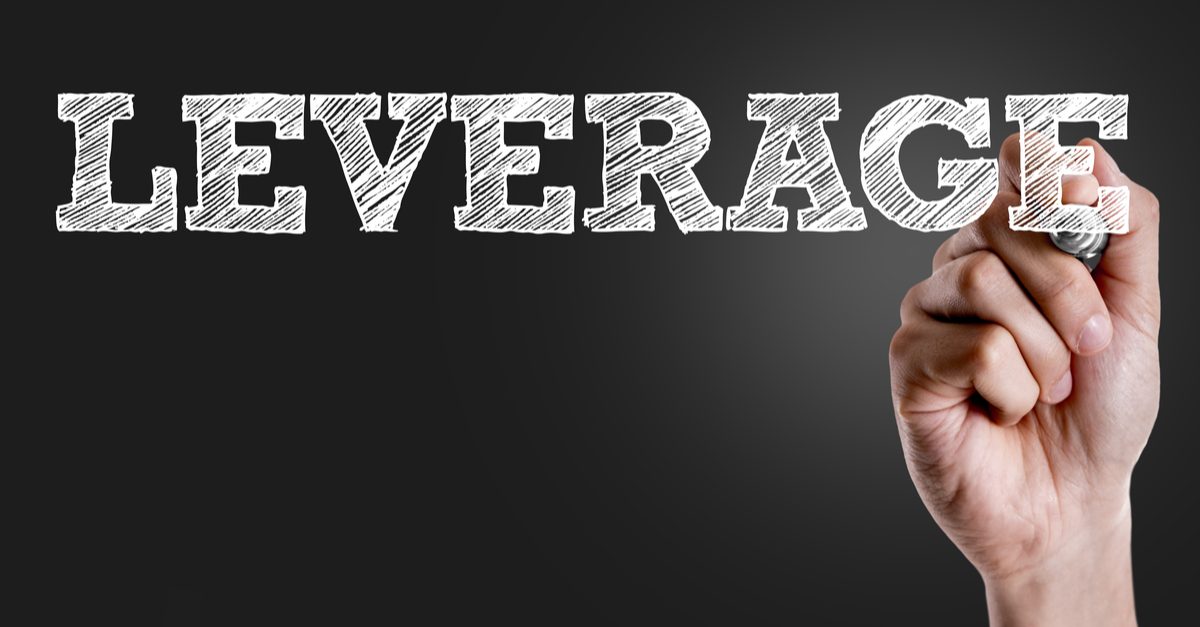How to Trade with Leverage

4 minutes for reading
What is Leverage

Leverage means the ratio between the money you own and that borrowed from the broker. Different brokers offer different leverage sizes, which also depend on the market you are trading. On Forex, you can easily find brokers offering up to 2000:1 leverage, and there's one that claims to offer unlimited leverage to its clients. In the stock market, meanwhile, you'd barely come across a broker that offers over 20:1 leverage.
Leverage in Forex
Leverage got especially popular in Forex, as it is less volatile, and one needs to have their funds leveraged in order to boost the performance, and, subsequently, the profits. The EUR/USD, for instance, moved just 1.10% in May, which would have returned you a 1.10% profit without leverage (1:1). Over the same period, Tesla yielded 14% profit to the shareholders. This way, once the Forex brokers stop offering leverage, the gains in the market will get ridiculously small for the retail traders, and those will have to move the money elsewhere.
How to Get Leverage
A broker will grant you leverage once you deposit your own funds on your account with that broker. Those funds are called margin, and they act as collateral for the loan money you get from the broker. Every broker has its own minimum deposit limit; in many cases, it is as little as $10. Some even don't require any: you just get a welcome bonus, 'free money' that acts as margin.
Leverage and Expenses
When trading with a broker, you as a trader always have to pay commissions on every trade you make. The commission or fee may be priced in spread or may be paid apart. Besides, when rolling a position overnight, you will have to pay the swap. Without leverage, those fees can be barely seen in the statement, but when you do use leverage, they become a few times larger. Let's assume you open a USD/JPY trade with a 1:1 leverage and a $1,000 deposit. With the smallest lot size, 0.01, and a spread of 1.90 pips, you get a ridiculous $0.17 fee. Once you have moved to a 100:1 leverage, however, you will be able to open a 1-lot position, and, considering this, the fee will increase to as much as $17.48. Thus, larger leverage leads to larger expenses.
Advantages of Leverage
Leverage is so much popular in Forex because, without it, you won't earn as much in Forex as in stock market over a certain time frame. Leverage increases the capital you can operate, thus boosting your performance and ROI. Look at the above example: suppose you opened a EUR/USD trade on May 1 and closed it on may 31; this would have yielded you 1.10% profit. With Tesla, you would have earned nearly 14 times more. That's why, if you don't use leverage in Forex, you don't want to trade Forex at all!
Leverage Risks

Unfortunately, not every trade results in profit. Sometimes, you will certainly have losing trades, and in this case the leverage will magnify your losses. Say, you went long on EUR/USD with a $1.200 deposit, the price is 1.1200, and your lot size is 0.01 (micro lot), each pip thus costing $0.10. Then the price fell to 1.190, and in case you decide to close your position, your loss will be as little as one dollar! With 100:1 leverage, this would be a different story. You would have most likely gone one lot, and a 10-pip fall will now cost you as much as $100. Your profit and loss size, therefore, is strictly bound to the leverage size; with more leverage, you earn more and you lose also more!
Conclusion
- Leverage allows you to trade with an amount, which is sometimes dozens or even hundreds of times larger than your deposit.
- In order to get the leverage, you need to deposit some funds on your trading account, those funds being your collateral, or margin.
- Using leverage increases your trading costs and expenses.
- With leverage, you can boost your performance and ROI drastically.
- When using leverage, you as a trader must be aware of the risks that may arise once the market starts moving against you.







